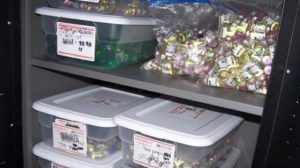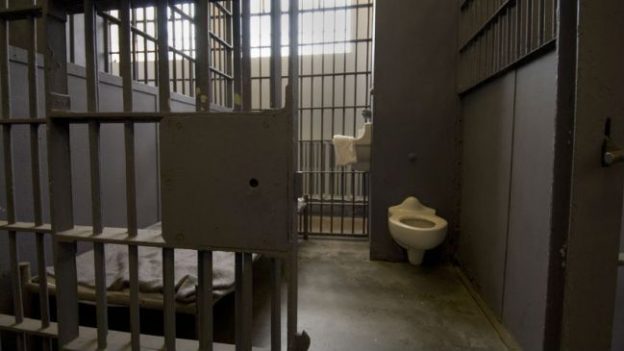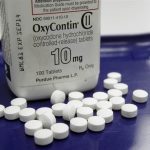A bodybuilding attorney named Eirk Moje has received a nine-month prison sentence for steroid offenses. Moje is an amateur bodybuilder who used to have a license to practice law within California. Now, he must spend nine months in prison and follow it up with a couple of years of supervised release. Moje tried to avoid a prison sentence in favor of home confinement. He wanted home confinement so he could access medical treatment.
DEA special agents busted Moje after working with the OCDETF (Organized Crime Drug Enforcement Task Force). DEA and OCDETF officials performed a raid of Moje’s residence in Turlock. The raid was a facet of a bigger operation, called Operation Cyber Juice. The raid took place in September of 2015. Agents uncovered five hundred and thirty-eight milliliters of steroids of the injectable type. They also uncovered over seventeen thousand oral steroid tablets. The steroids were concealed in a compartment which was secret. Moje entered a guilty plea for illegally importing anabolic steroids in February of 2017.

Operation Cyber Juice seizure
Moje’s defense attorney, Kevin Little, stated that his client would be happy to accept a sentence of eleven months. This was the sentence length which was recommended by the government. However, Little did acknowledge that United States District Judge, Dale Drodz, had leeway in terms of determining how and where the sentence would be served.
With this leeway in mind, Little requested probation which has a custodial component. Little wanted a home confinement sentence for eleven months or less, in order to fulfill the penalties for the conviction. Previously, Moje agreed to give his home, which is valued at three hundred and thirty thousand dollars, to the government and to forfeit a significant quantity of cash, as per the stipulations of the plea agreement.
According to Little, home confinement was mandatory as Moje wouldn’t be able to access appropriate medical care in prison. Little noted a range of psychiatric and medical conditions which afflicted his client and necessitated the taking of medication and treatment via medical procedures. Little said that treatments for these conditions would be interrupted while he was incarcerated. In prison, Moje would be subject to prejudicial interruptions in medications, which would be likely to negatively impact his well-being and health.
In particular, in Little’s view, Moje needed phlebotomies on a bi-weekly basis, for therapy for a polycythemia condition. As well, he needed testosterone enanthate for hypogonadism. Also, he needs Adderall for ADHD and Xanax to treat panic attack problems. In addition, Moje needs Gabapentin for neuropathy and Zyrtec and Montelukast for asthma. As well, according to Little, he requires Cialis due to prostate hyperplasia. In prison, it’s not possible to get Cialis or Xanax, due to Bureau of Prisons medical policies. As well, the Bureau of Prisons will not write prescriptions for Adderall until an inmate has spent eleven months behind bars. In addition, BOP (Bureau of Prisons) waits six months before prescribing Testosterone. Other medication restrictions would also impact Moje.
The federal prosecutor for the case, Phillip Talbert, didn’t find Little’s justification for a home confinement sentence credible. Federal prosecutors let the court know that Moje’s polycythemia was a secondary form of the condition which was triggered by his anabolic steroid usage. Prosecutors seems to indicate that Moje’s polycythemia would go away after he stopped using testosterone and that he would stop using it in prison. As well, the prosecutors found an article which they quoted from. It stated that athletes who take anabolic steroids and develop the secondary form of polycythemia are not usually administered phlebotomy treatments.
Talbert and other prosecutors on the federal team seemed to feel that Moje’s physician, Jonathan Annis, was not believable in terms of his treatment plan for his patient. Annis participates in competitions for bodybuilding, which might create a clouded viewpoint. As well, Annis is on probation via a decision by the California Medical Board. This means that he’s not allowed to engage in practicing medicine on his own.
The Judge mostly agreed with the lawyers from the government. However, Judge Drozd did reduce Moje’s sentence to nine months in prison.







